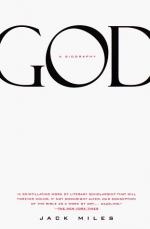|
This section contains 1,302 words (approx. 4 pages at 400 words per page) |

|
Chapter 13 Summary
The classic Greek tragedies are all versions of the same tragedy, suggesting all human lives are variations of foreordained, determined by a "tragic flaw." We grieve for ourselves through the cathartic spectacle on stage. Hamlet is a different kind of tragedy; never does the outcome appear inevitable. Hamlet's flaw would remain a flaw in a variety of other circumstances. The Tanakh is closer in spirit to Hamlet than to Oedipus Rex, because of its lack of autonomous fate; even silent and inactive, God does not abdicate to Fate, Nature, Cosmos, or Ground of All Being. The Tanakh is entirely character-dominated, as can be seen by parsing out the several personalities fused into God's character. It can be summarized in terms of the "ordinary" myth of calm, benign Eloh, the creator of the physical world; Yah, his impulsive brother and creator of the human...
(read more from the Chapter 13 Summary)
|
This section contains 1,302 words (approx. 4 pages at 400 words per page) |

|




